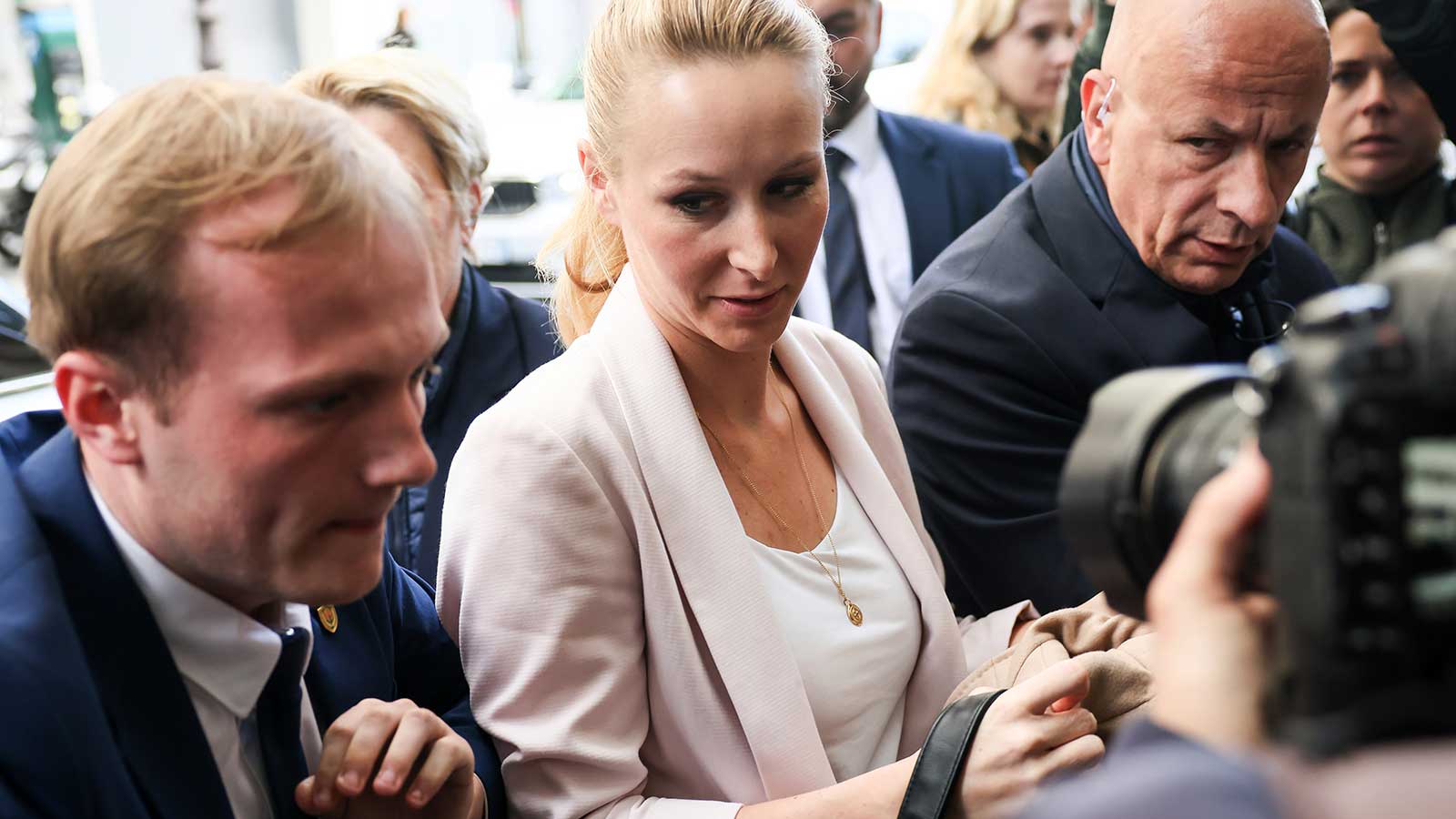You’d be forgiven for failing to keep up with the explosive developments in French politics this week after the results of Sunday’s European elections sent the country into meltdown.
The last 72 hours tell a tale of backroom deals and betrayal to oustings and outrage.
So, just what on Earth has been going on, and what’s the latest?
We start on Sunday when French voters cast their ballots in the European Parliamentary elections, handing the right-wing populist National Rally (RN) a comprehensive victory and a mandate to shake things up in Brussels. The party, whose de facto leader is firebrand nationalist and former presidential election candidate Marine Le Pen, won a third of all votes and double the share amassed by French President Emmanuel Macron’s centrists.
Macron didn’t even wait for the votes to be counted, announcing an address to the nation just one hour after the exit poll was published predicting a crushing defeat. He immediately dissolved the French parliament, the National Assembly, and called a snap election on June 30.
The announcement set the wheels in motion for a flurry of talks between political parties on both sides of the spectrum intent on bringing an end to the now intensely disliked Macronism and installing a new either socialist or nationalist government in Paris.
The French left, including the Greens and socialist stalwart Jean-Luc Mélenchon’s La France Insoumise (LFI) agreed to form a coalition on Monday, forming the Popular Front alliance designed to thwart right-wing candidates.
The major players on the right include Marine Le Pen and Jordan Bardella’s National Rally, Éric Zemmour’s Reconquête, and the center-right Les Républicains.
Hours after the election was called, Reconquête’s lead candidate in the European elections, Marion Maréchal, who happens to be the niece of Le Pen, held secret meetings with her aunt and Bardella to discuss an electoral pact. The parties had slung mud at each other during the European parliamentary ballot and align with different European groups — Reconquête sits with the European Conservatives and Reformists (ECR) group, while RN is affiliated with Identity and Democracy (ID).
However, there was hope that Maréchal could facilitate a unification of the right-wing vote, efforts that were ultimately in vain.
On Tuesday, President of Les Républicains (LR) Éric Ciotti, announced he had agreed to an electoral pact with Le Pen and Bardella that would see the parties run on a joint ticket in the legislative elections. Ciotti’s center-right party was seemingly perceived to be more palatable than Reconquête in the eyes of the RN leadership. The move enraged many within Ciotti’s own party who lamented the fact that, in their eyes at least, the party was kneeling to the far-right for a shot at co-governing, and some vowed to overturn the decision.
The French establishment was even more incensed, with Interior Minister Gérald Darmanin claiming Ciotti had “signed the Munich Accords,” referring to the agreement the Allies had to hand Czechoslovakia’s Sudetenland to Nazi Germany in 1938.
Shortly after this pact was announced, Maréchal revealed that talks had broken down for a similar agreement between RN and Reconquête, claiming that the top brass in RN didn’t want to align itself with her party leader Éric Zemmour.
Zemmour, however, later on Tuesday announced that he would not contest the election as a candidate since his constituency has an incumbent RN MP and he, as a “patriot,” was willing to put country before party and step aside. Reconquête politicians, however, would still contest other seats across the country in the absence of a broader electoral pact with RN.
On Wednesday, there were more fireworks. First, Ciotti attempted to halt an emergency meeting among LR’s political chiefs by locking the doors to the party’s Parisian headquarters. His futile attempts failed and the party executive dismissed him from his role, appointing François-Xavier Bellamy as interim leader.
Ciotti took to social media to claim that “none of the decisions taken at this meeting carry legal consequences” and “may have criminal repercussions.” He stood by his electoral pact and said that many supportive Republicans would still adhere to the agreement with RN, but the overriding pact is now in jeopardy.
Then, the tension between Maréchal and Zemmour reached its crescendo in the Reconquête camp, with news breaking that the pair had parted ways after falling out over how to move forward with its electoral strategy.
Zemmour claimed he had met with the party’s executive to “prepare the party for the elections, while accepting that in the event of agreement (with RN) we would withdraw Reconquête candidates to allow the great rally for victory.”
He said that Maréchal and others around her held a press conference in which they accused him of “blocking” a union on the right, something he claimed to “have been yearning for for 30 years.”
“I am sickened and hurt, like all activists, sympathizers and voters, by the betrayal of Marion Maréchal to whom we all trusted, to whom we gave everything: the head of the European list and the sacrifices of the activists,” Zemmour wrote in a statement.
“Barely 48 hours after being elected by 1.3 million Reconquête voters, she chose to sell out our party, to consider that it was no longer legitimate to carry her ideas, to attack us with slander,” he added.
In a brief statement, Maréchal “took note” of her exclusion from Reconquête because of her “refusal to present candidates” to stand against the right-wing alliance agreed between RN and LR.
“I would like to point out that I am not returning to the RN but bringing to life the necessary union of those on the right to beat Emmanuel Macron and save our country,” she added.
Maréchal was praised by her aunt for “prioritizing the national interest over partisan considerations.” The French politician praised her niece’s “courageous position, which will strengthen the patriotic dynamic.”
The first polls are predicting much of the same from the European elections in the first round of voting on June 30, with National Rally expected to win a relative majority. Whether any of the electoral pacts agreed or negotiated will hold remains to be seen.
As they say, a week is a long time in politics, but this week in particular has been one of the most explosive in France in recent history, and we’re only just over the hump.






